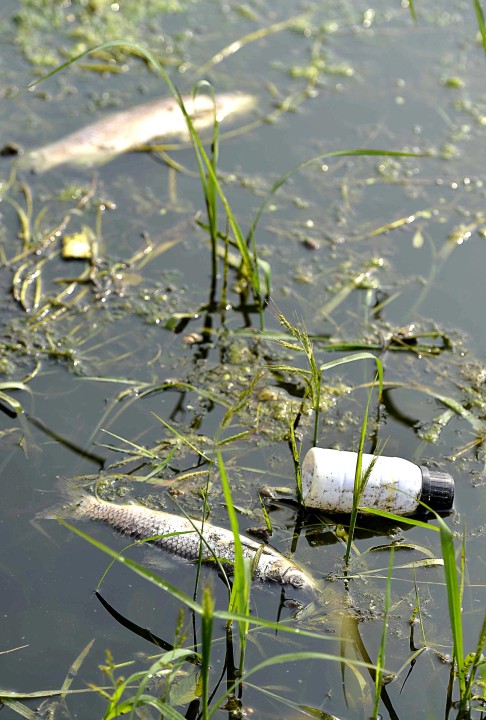Exposing shoddy 'tofu': China's eco-research to clean rivers and lakes squandered billions in funds
Investigators find ¥34 billion fund, aimed at cleaner rivers and lakes, is being squandered
PUBLISHED : Sunday, 04 October, 2015, 11:18pm
UPDATED : Monday, 05 October, 2015, 7:17pm
Li Jing
[email protected]

An iron and steel factory is just located in the middle of the Luan River. About 30 per cent of the country's major rivers are polluted or severely polluted. Photo: Xinhua
The term "tofu projects" was coined years ago to describe poorly built infrastructure that could prove deadly.
But anti-corruption investigators have found that the term - first used by Premier Zhu Rongji to describe flood dykes that were as porous as tofu dregs - could equally be used to describe some of the shoddy projects that have been taking place under the guise of the nation's biggest scientific research programmes.
One such project that has come especially under the spotlight is the "Special Water Programme" - China's largest ever scientific research fund, launched in 2009 with a pledge of 34 billion yuan (HK$41 billion) over an 11-year period to find technological solutions to clean major rivers and lakes.
The fund had promised to breakthrough institutional obstacles, reduce pollution discharged into the waterways, and rehabilitate six major rivers and lakes.
Last month, after a series of reports the fund was being misused at local levels over the past few years, the chief engineer of the programme, Meng Wei, was given a warning for oversight.
An inspection had found that fake and disreputable research projects had been claiming money from the fund.
Meng is also the director of Chinese Research Academy of Environmental Sciences, one of the leading institutes of the special programme. A few other executives and researchers also received warnings - the lowest type of administrative punishment in the mainland's bureaucratic system.
The irregularities were first spotted by inspectors from the country's top graft-busting body in March.
The Ministry of Environmental Protection launched a subsequent investigation, and found several research institutes, an environmental company and an accounting firm were involved in cheating or squandering research funds.
Funding approval was given for plagiarised research and to projects not eligible for sponsorship, state media reported.
The reports did not put a figure on how much money had been squandered, but the Chinese Research Academy of Environmental Sciences was ordered to retract 450,000 yuan it had granted as a "technology service fee" for two institutions.
The ministry said it would hand over evidence of criminal violations to prosecutors.

Dead fish litter the Daheiting Reservoir. Photo: Xinhua
This was not the first time the fund had been misused. Last year, Chen Yingxiu, a vice-president at Zhejiang University, was sentenced to 10 years in prison for embezzling 9.45 million yuan from the fund.
China Business News reported last year that a mid-term review of the programme found that its funds had been spent on buying microwaves, cleaning air conditioners, covering student tuition, and even paying personal income tax.
The latest findings show that poor management can also result in the squandering of public funds dedicated to solving one of the mainland's most pressing environmental issues.
"How ridiculous, we've surveyed the country's major rivers over the past decade, without spending a penny from the national fund," said Yang Yong, an independent geologist.
The environment ministry's yearly update said nearly 30 per cent of the country's major rivers remained polluted or severely polluted - with 9 per cent unsafe for human contact.
And some of the chronic problems in lakes, such as algae outbreaks in summer months, remained severe.
